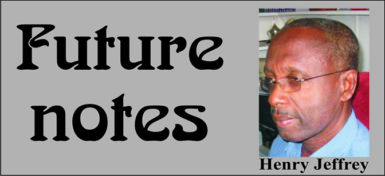 Now that we have reached a hiatus in the confrontation between the Movement Against Parking Meters (MAPM) and the Mayor and City Council, it may be as good a time as any to attempt to determine what that confrontation represented in terms of some possible futures of the movement. Whether he knew it or not, one of the keen observers of the movement, Mr Bernard Ramsey, explained its main feature and directed us to its essential difficulty:
Now that we have reached a hiatus in the confrontation between the Movement Against Parking Meters (MAPM) and the Mayor and City Council, it may be as good a time as any to attempt to determine what that confrontation represented in terms of some possible futures of the movement. Whether he knew it or not, one of the keen observers of the movement, Mr Bernard Ramsey, explained its main feature and directed us to its essential difficulty:
“The Movement Against Parking Meters, a non-political and peaceful movement which got started when just one person on WhatsApp suggested that it was time to show our resistance, in less than three hours had over 300 persons weighing in with their responses. In less than two weeks they were able to galvanize thousands of supporters forcing those few who started it to act quickly with stickers, flyers, and other methods of communication. It grew so strong that it successfully pulled off a protest of hundreds in just a few days. This surely is remarkable and has never been done in Guyana by any movement political or non-political, that I have ever seen.” – SN 05/02/2017
While indeed novel to Guyana, the sort of strategy Mr Ramsay explained has been adopted by the activists who tried to shut down the 1999 World Trade Organisation meeting in what became known as the Battle in Seattle, the Arab spring, the anticorruption movements in India, Brazil, Uganda and Thailand, the anti-austerity regimes in Greece, Italy, Portugal and Chile, the various occupy movements and colour revolutions. As Naomi Klein said of Seattle, what emerged on the streets “was an activist model that mirrors the organic, decentralized, interlinked pathways of the Internet – the Internet come to life” (www.thenation.com/article/vision-thing/).
Some weeks ago, having made some observations and recommendation as to the future direction of the movement, Mr Ramsay called upon MAPM to “consider formalizing its organization if it has not already done so, in order to be a more bona fide grouping” (SN 24/03/2015). In this regard, having considered the ‘old’ and ‘new’ forms of protest and organisation, Maha Abdelrahman, speaking of the new social movement in Egypt, claimed that the challenge is “to develop their efforts from a series of protest events to a movement and to find an organisational form that allowed spontaneity and a lack of rigidity while at the same time ensuring sustainability” (http://eprints.lse.ac.uk/63903/1/ MahaAbdelrahman_Social%20 movements- 2015.pdf).
Our history is replete with protest of various sorts, but in my view what distinguishes this one is essentially its mode of mobilisation, although I also recognise that to view MAPM’s success in this single dimensional manner would not properly account for what has taken place or is yet to come. MAPM’s success also resulted from its focus upon a single issue against a perceived arrogant and largely discredited institution, early in the life of a new government, which although supportive of the City Council, has not yet found its feet.
Charging all and sundry for parking in what has been traditionally free space is as close as one could get to a single apolitical issue around which to galvanize public support, and notwithstanding the initial efforts of the old guards at City Hall, they were not able to label it otherwise. As I have argued, in some jurisdictions referendums are held before parking meters can be introduced (http://www.stabroeknews.com/2016/features/06/29/can-guyana-afford-parking-meters/).
In its efforts to dominate the national political scene, the PPP/C deliberately set out and largely succeeded in discrediting the PNC-controlled City Council. For decades, the City Council has been institutionally very weak, but instead of seeking to improve the council’s managerial capacity, the PPP/C used its management failures to starve it of resources. A clear indication of this is that the APNU+AFC government could have overnight made a positive impact on the physical environment of the city.
Maybe it was too much to expect from a still largely administratively decrepit institution and so the taking of national government by its party and the PNC sweep at the local government elections, far from resulting in positive behavioural change, made the city managers as, if not more arrogant than those who previously suppressed them. The treatment of the vendors, the parking meter fiasco, etc, reinforced by the historical perception of incompetence, gave the protesters a useful advantage.
As opposed to the ‘old’ social movements which quite quickly morphed into bureaucracies controlled by diehard oligarchies that usually subvert the positive message they once proclaimed, the new social movements are horizontal networks needing no leader, capable of organising without a central authority and based on a diffuse notion of power.
This so-called ‘geek adhocracy’ has a hierarchy consisting of those who own and control the computer networks linking the activists to one another and hubs and spokes. The meetings such as those that MAPM did coordinate on Thursdays are activist hubs, made up of any number of autonomous groups or individuals. In this kind of laissez-faire organising “no one has to give up their individuality to the larger structure; as with all things online [we] take what we want and delete what we don’t. It is a surfer’s approach to activism reflecting the Internet’s paradoxical culture of extreme narcissism coupled with an intense desire for external connection” (Klein above).
In the political arena a major strength is that this kind of organising is difficult for anyone to control and thus subvert: one may be able to wreak revenge on given individuals or groups but it is relatively difficult to put an end to the movement itself. However, the major weakness is that it is usually not easy to reach a consensus within such arrangements. For example, it is one thing to agree that the current parking arrangement was badly handled but quite another to determine that parking meters are necessary and/or inevitable.
However, MAPM being a relative small, single issue movement should be able to overcome the tensions inherent in its being capable of facilitating episodic waves of protest which momentarily destabilized the status quo and its building structures, of whatever sort, that can fulfil the aspirations of its supporters (Maha above). While the political establishment will certainly attempt to use the three-month interval the movement won from it to find its feet, the ‘movers and shakers’ of MAPM should attempt to devise methods for and reaching consensus on the way forward.
In doing so, they should give serious consideration to alternative forms of thinking such as that expressed by Naomi Klein when she claimed that like “the Internet itself, you don’t do it (achieve coherence) by imposing a preset structure but rather by skillfully surfing the structures that are already in place. Perhaps what is needed is … better links among the affinity groups; … rather than moving toward more centralization, what is needed is further radical decentralization.”









